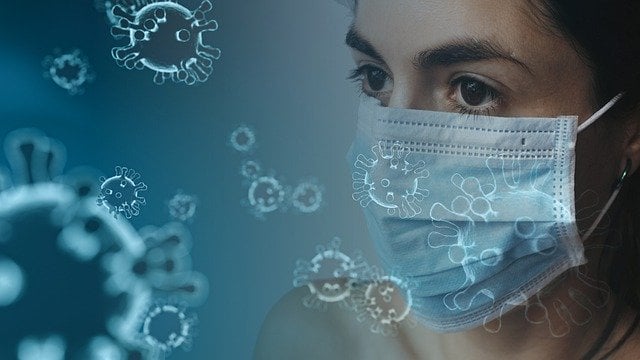
Imperial scientists are members of a £8.4m project to solve key questions on how our immune system interacts with COVID-19
The new UK Coronavirus Immunology Consortium (UK-CIC), aims to answer key questions on how the immune system interacts with SARS-CoV-2 to help fight COVID-19 and develop better diagnostics, treatments and vaccines.
Unpicking the intricacies of the immune response will improve patient care and support the development of new treatments against COVID-19 Professor Peter Openshaw Co-chair, UK-CIC
Identifying how the immune system responds to SARS-CoV-2 is critical to understanding so many of the unknowns around this novel virus – for example, why does it make some people sick and not others, what constitutes effective immunity and how long might that immunity last? The immune system is extremely complex and to make rapid and effective progress in our knowledge, a cohesive, nationally co-ordinated approach is required.
To address this need, the UK Coronavirus Immunology Consortium has received £6.5million of funding over 12 months from UK Research and Innovation (UKRI) and the National Institute for Health Research (NIHR), the largest immunology grant awarded to tackle the COVID-19 pandemic.
UK-CIC aims to deliver meaningful benefit for public health by providing insights critical for improving patient management, developing new therapies, assessing immunity within the population and developing diagnostics and vaccines.
Five key puzzles
The project sees 17 of our centres of excellence combine their expertise to fight the coronavirus pandemic.
This innovative consortium is led by Professor Paul Moss from the University of Birmingham. It will collaborate closely with ISARIC-4C, an internationally-leading project already underway to examine the immune profile of hospitalised patients with COVID-19, and is supported by the British Society for Immunology.
UK-CIC aims to answer five key questions that will help the global coronavirus response.
- Why do people experience different symptoms to COVID-19 and what role does the immune system play in this?
- What constitutes immunity to COVID-19 and how long does it last?
- How does the immune system respond to SARS-CoV-2 on a molecular and cellular level and what happens when the immune system overreacts?
- Can infection with other mild coronaviruses (which cause the common cold) protect you from catching COVID-19 or will it make you more ill?
- How does SARS-CoV-2 hide from the immune system?
Together, we will tackle the key questions that restrict our understanding of COVID-19, including why some people develop severe disease Dr Ryan Thwaites UK-CIC collaborator
Professor Peter Openshaw, UK-CIC Co-Chair and ISARIC-4C lead, from Imperial College London, said: “Studying the immunology of COVID-19 is vital to our ability to develop new treatments and vaccines against this disease. ISARIC-4C, an established UK-wide project to study hospitalized patients with COVID-19, has already collected data from over 75,000 people and collected multiple clinical samples from over 2,400 cases. We can follow this unique cohort over time and, by joining forces with the UK Coronavirus Immunology Consortium, have a unique opportunity to analyse the immune profiles of COVID-19 patients. This will help us understand how the immune system protects us from, and reacts to, SARS-CoV-2. Unpicking the intricacies of the immune response will improve patient care and support the development of new treatments against COVID-19. The UK can lead the world in studies of this type”.
Why do some people get severe disease
Dr Ryan Thwaites, from the National Heart and Lung Institute and research associate on the ISARIC-4C project added: “The UK-CIC brings together dozens of research groups from across the UK. Together, we will tackle the key questions that restrict our understanding of COVID-19, including why some people develop severe disease and how the immune system clears this infection. At Imperial College we are contributing our expertise in studying immune responses in the airways to better understand this disease at the respiratory site of infection. We will also study the antibody and T cell responses in the airway while patients are recovering from COVID-19. Together with our UK-CIC collaborators we hope that this research will rapidly develop our understanding of the harmful and beneficial roles of the immune response during COVID-19, and how this might be harnessed to develop new treatments and vaccines against COVID-19.”
Adapted from a press release from the British Society for Immunology
https://news.google.com/__i/rss/rd/articles/CBMiVmh0dHBzOi8vd3d3Lm1pcmFnZW5ld3MuY29tL2NvdmlkLTE5LWltbXVuZS1zeXN0ZW0tcHV6emxlcy10by1iZS10YWNrbGVkLWJ5LXNjaWVudGlzdHMv0gEA?oc=5
2020-08-28 15:34:18Z
52781027294630
Bagikan Berita Ini














0 Response to "COVID-19 immune system puzzles to be tackled by scientists - Mirage News"
Post a Comment